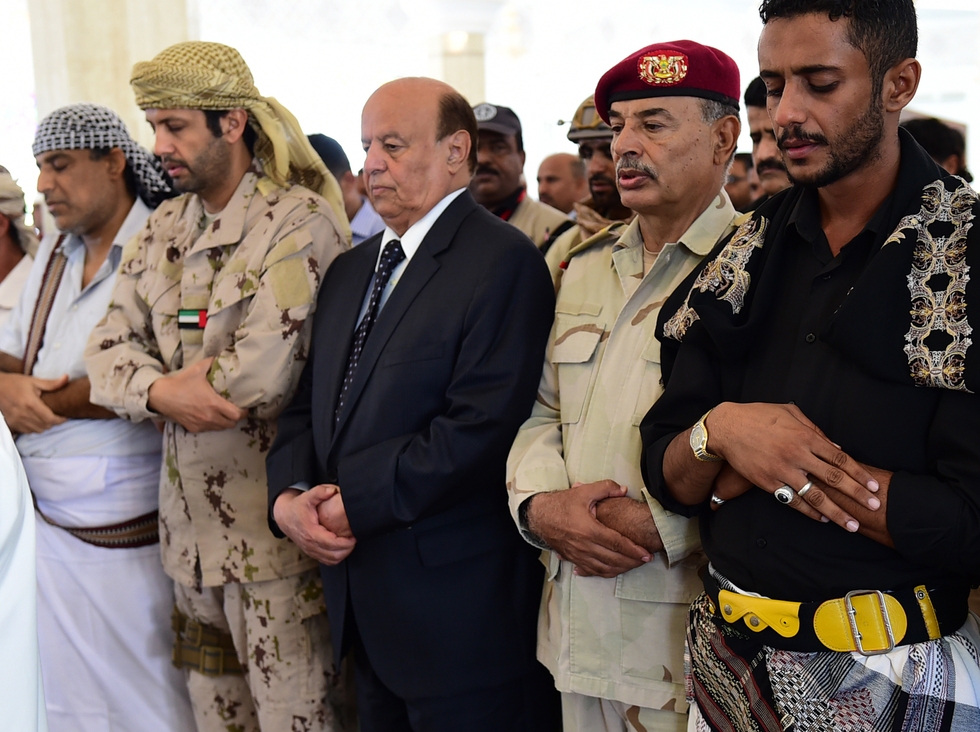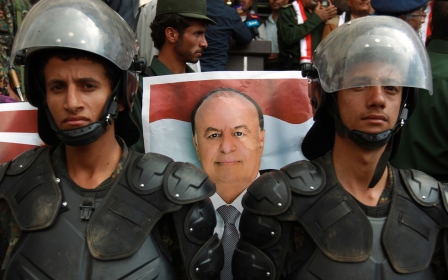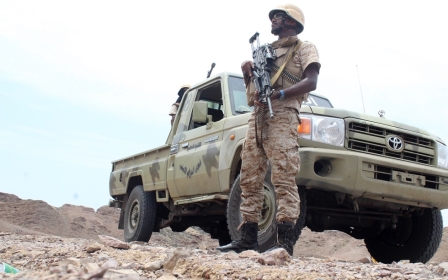Yemen president rejects UN peace proposal

Yemeni President Abd Rabbuh Mansour Hadi on Saturday rejected a peace proposal submitted by UN envoy Ismail Ould Cheikh Ahmed aimed at ending the war in his impoverished country, a presidency source told AFP.
Hadi "received Ould Cheikh Ahmed and refused to take the UN proposal" handed to him by the envoy, the source said.
The contents of a peace roadmap which the envoy already presented to the rebels in Yemen's conflict on Tuesday have not been made public.
Informed sources say it calls for agreement on naming a new vice president after the rebels withdraw from the capital Sanaa and other cities and hand over heavy weapons to a third party.
Hadi would then transfer power to the vice president, who would appoint a new prime minister to form a government in which the north and south of Yemen would have equal representation.
A statement on the government's website quoted Hadi as saying the roadmap "only opens a door towards more suffering and war and is not a map for peace".
While previous peace proposals were "logical even if to a certain extent... the thoughts presented today under the name of a roadmap... only carry the seeds of war".
The statement confirmed Hadi refused to receive it, citing him as saying that the plan "rewards the putschists while punishing the Yemeni people and legitimacy".
Iran-backed Houthi rebels overran Sanaa in September 2014 before tightening their grip on power and forcing Hadi to flee with members of his government.
While the government has shifted its temporary headquarters to Yemen's second-city of Aden, Hadi resides in Riyadh with most senior officials as security in the Yemeni port city remains fragile.
His loyalists fighting the rebels are backed by a Saudi-led coalition that has bombed the insurgents since March 2015.
The United Arab Emirates, a key coalition member, had welcomed the UN envoy's proposal on Thursday.
The Emirati state minister for foreign affairs, Anwar Gargash, said on Twitter that "the roadmap represents a political solution for the Yemeni crisis".
The rebels are yet to respond to the proposal and Saudi Arabia has also not commented.
Nearly 7,000 people have been killed in Yemen's conflict since March 2015 and more than 35,000 wounded. The war has displaced three million Yemenis and left millions in need of food aid.
New MEE newsletter: Jerusalem Dispatch
Sign up to get the latest insights and analysis on Israel-Palestine, alongside Turkey Unpacked and other MEE newsletters
Middle East Eye delivers independent and unrivalled coverage and analysis of the Middle East, North Africa and beyond. To learn more about republishing this content and the associated fees, please fill out this form. More about MEE can be found here.




